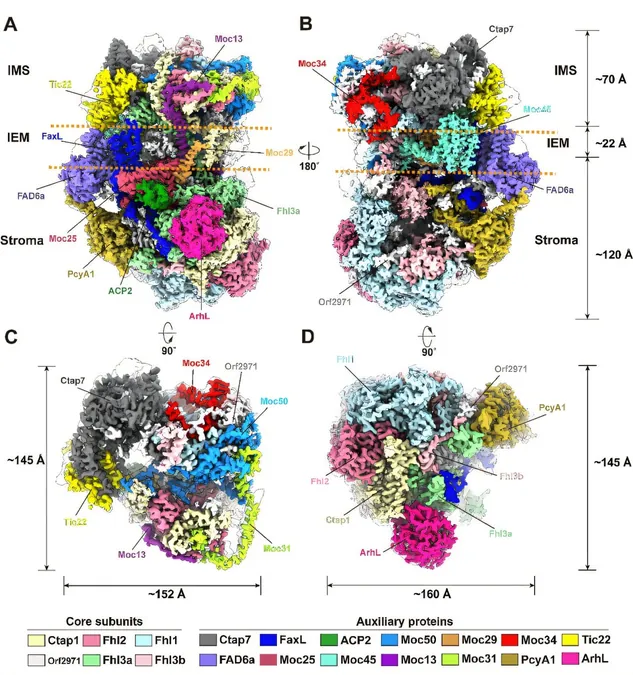
The US Government's Urgent Call: Why Software Developers Must Ditch C and C++ for Safer Options
2024-11-08
Author: Emma
The landscape of software development is evolving, and the US government is making a crucial call to action—a dramatic shift that could redefine coding practices in critical infrastructure.
The Cybersecurity and Infrastructure Security Agency (CISA) and the Federal Bureau of Investigation (FBI) have ramped up their efforts, urging software manufacturers to abandon "memory-unsafe" programming languages such as C and C++. But why such a strong stance?
Recent reports have shown alarming statistics: memory safety vulnerabilities account for a staggering 70 percent of all security vulnerabilities across software applications.
The report warns that utilizing memory-unsafe languages in products critical to national infrastructure significantly elevates risks associated with national security, economic stability, and public health.
With over half of the examined open-source projects (172 in total) containing code written in C or C++, it’s evident that a profound change is necessary.
CISA's previous studies, particularly the 2024 report titled "Exploring Memory Safety in Critical Open Source Projects," highlighted the widespread use of these languages and the vulnerabilities they harbor, such as buffer overflows and use-after-free errors.
Such vulnerabilities open the door to malicious exploits, allowing adversaries to seize control of vital systems and sensitive data.
So, what’s the alternative? CISA suggests a pivot towards memory-safe programming languages like Rust, Java, C#, Go, Python, and Swift.
Each of these languages incorporates built-in protections against common memory-related mistakes, effectively offering a more secure framework for application development.
However, transitioning from established languages like C and C++ to Rust or other alternatives is not a straightforward endeavor.
As highlighted by Linux creator Linus Torvalds during the Open Source Summit Europe in 2024, the dialogue surrounding Rust's integration into Linux has developed almost religious fervor, with longstanding developers often resistant to learning a new language that demands a different approach despite potential benefits.
The challenges of this transition are multifaceted. For starters, converting extensive legacy codebases to newer languages is a monumental task—time-consuming and requiring meticulous planning to ensure existing functionality remains intact.
Moreover, companies may face performance compromises, which is a significant consideration in industries where speed is vital.
Budget constraints compound this issue further; companies often prioritize immediate profitability over long-term investments in security enhancements.
With professional developers holding years of expertise in C, many are reluctant to abandon well-trodden paths for unfamiliar territory.
Despite CISA's insistence on a roadmap for transitioning existing projects to memory-safe languages by January 1, 2026, skepticism remains.
Many developers and businesses are not readily aligned with this vision, as investing in security often conflicts with contemporary corporate pressures to deliver short-term financial results.
The reality is complex.
While a shift to memory-safe languages could enhance security posture and reduce vulnerabilities over time, the current corporate environment shows little appetite for embracing such transformative changes in the short run.
In a landscape fraught with pressures and challenges, the question remains: will we see the much-anticipated migration to safer programming practices by the 2030s, or are we destined to grapple with the shadows of memory-unsafe languages for years to come?
Only time will tell, but one thing is clear—the conversation about software safety is more crucial than ever before.









 Brasil (PT)
Brasil (PT)
 Canada (EN)
Canada (EN)
 Chile (ES)
Chile (ES)
 España (ES)
España (ES)
 France (FR)
France (FR)
 Hong Kong (EN)
Hong Kong (EN)
 Italia (IT)
Italia (IT)
 日本 (JA)
日本 (JA)
 Magyarország (HU)
Magyarország (HU)
 Norge (NO)
Norge (NO)
 Polska (PL)
Polska (PL)
 Schweiz (DE)
Schweiz (DE)
 Singapore (EN)
Singapore (EN)
 Sverige (SV)
Sverige (SV)
 Suomi (FI)
Suomi (FI)
 Türkiye (TR)
Türkiye (TR)